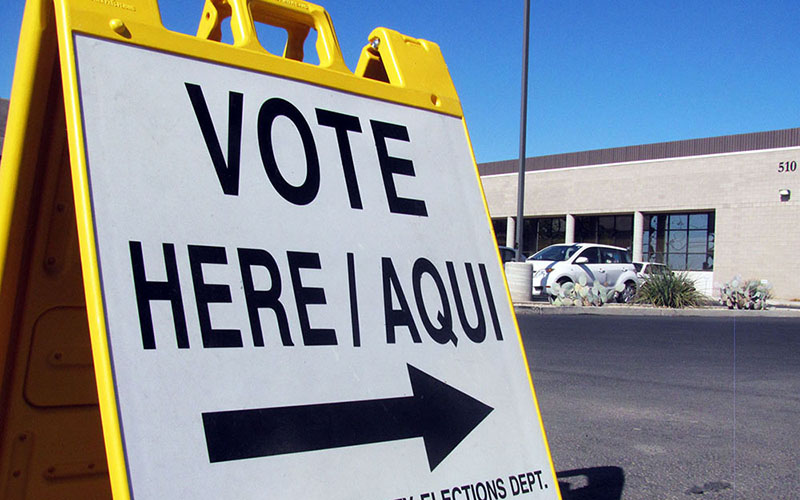
A federal court said Tucson’s system of electing city officials, an “unusual” hybrid of ward-based and at-large voting, unconstitutionally violated the one-person, one-vote principle. (Photo by Natasha Khan/Cronkite News)
WASHINGTON – A divided federal court on Tuesday overturned Tucson’s “unusual” method of electing city council members, saying the split system of ward and at-large elections unconstitutionally violated the one-person, one-vote principle.
A three-judge panel of the 9th U.S. Circuit Court of Appeals said the city cannot exclude out-of-ward voters from primary elections that choose candidates by ward who then run citywide, saying that gives “disproportionate weight” to voters in a council member’s home ward.
“We cannot endorse an election system that encourages at-large representatives to prioritize kissing babies and currying favor in their home wards over the interests of their constituents who happen to live in other parts of the city,” Judge Alex Kozinski wrote for the majority.
But in a dissent, Judge Richard Tallman called the majority’s ruling a “judicial highjacking” of an election system that has been in place for 85 years.
“There are certain times when a federal court may tell a municipality how to run its local elections,” Tallman wrote. “This is not one of them.”
It was not clear how Tuesday’s ruling would affect last week’s city elections, in which four Democrats named as defendants in the case were re-elected – Mayor Jonathan Rothschild and Council Members Regina Romero, Paul Cunningham and Shirley Scott.
Bruce Ash, a plaintiff in the suit, along with the Public Integrity Alliance and others, said the court’s decision “may very well lead to a change ultimately in Tucson elections” but that it likely “won’t have an impact on last week’s elections.”
“We’re still talking with our lawyers,” said Ash, a Republican National Committeeman for Arizona.
Tucson City Attorney Mike Rankin said he is scheduled to meet Nov. 17 with the mayor and other city officials to decide how to proceed.
Since 1930, Tucson has elected council members by first holding ward primaries in which voting is restricted to residents of that ward. Nominees selected in those primaries then run citywide in the general election.
Kozinski noted that the eventual winners “will represent the entire city…. Because all Tucsonans have an equal interest in determining who the nominees will be, the city may not exclude out-of-ward voters from the primaries.”
Kozinski said that in a state that generally votes Republican, Tucson’s process disadvantages GOP candidates in a city that “generally votes Democratic.”
“The Democratic nominee from each ward will likely win the general election regardless of whether the ward from which he was nominated is principally Republican or Democratic,” Kozinski wrote. “In most cases, then, the Democratic ward primary is the only election that matters.”
The appeals court decision reverses a district court ruling that had upheld the city’s election system in May.
City officials said it was the voters who put the system in place and that multiple proposals to change the system – to either a purely ward-based council or a purely at-large body – have been voted down.
“Over the last five years, we’ve been in court a lot … defending the rights of the city’s voters,” Rankin said. “We were defending what the locals have approved.”
But Arizona Republican Party Chairman Robert Graham hailed the appeals court’s decision in a statement Tuesday in which he called the decades-old format an “outrageous election scheme.”
“The court acknowledged that Arizona voters generally choose Republicans, and that Tucson Democrats gave themselves an ‘enormous advantage’ by carefully excluding voters from selecting the candidate of their choice,” Graham said in the statement Tuesday. “This is a big win for the voters.”
But Tallman said in his dissent that Tucson voters have already spoken.
“Tucson is now forced to choose between an entirely at-large method of election or a ward-only method of election despite the fact that a majority of Tucson citizens have twice before voted against adopting these election systems,” he wrote.